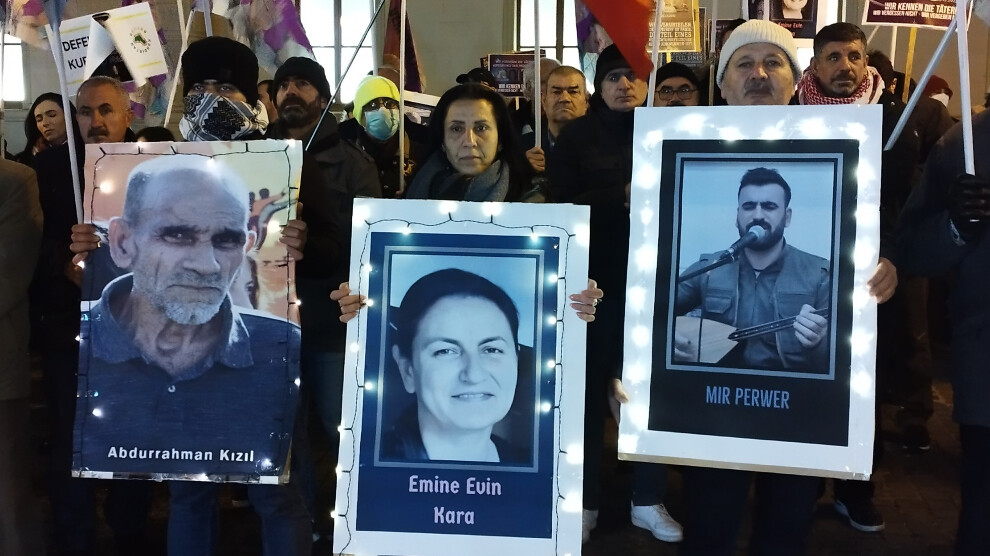Following the latest terrorist attack inside the French capital of Paris that targeted the headquarters of the Kurdish „Ahmad Kaya“ association and resulted in the brutal murder of the three Kurdish activists Amina Kara, Mir Parwer, and Abdul Rahman Kazal, the Kurdish Center for Studies hosted an online seminar to discuss the implications of this sad event.
Even though this attack was mercilessly perpetrated by native French citizens who also admitted to his hatred towards foreigners in front of the police, political researcher Dr. İbrahim Seydo Aydoğan, who also happened to be present at the time of this heinous crime, is staunchly convinced that this attack was politically motivated.
It is the second attack to specifically target Kurdish activists and individuals, after the murder of the three female PKK fighters Sakina Cansiz, Fidan Dogan, and Leyla Seylemez in Paris in January 2013 by the Turkish intelligence service.
Dr. Aydoğan further draws a comparison to the historically ingrained discrimination and forced assimilation of Kurds in the four states, they are dispersed in, especially Turkey, and states that the attacks in Paris constitute a political continuation of the same mentality and policy that seeks to obliterate the Kurdish identity by targeting its intellectual elite and notable activists. His argument is based on the assumption that the identity of the killer does not matter but rather his motivation to engage in this crime, which from Dr. Aydoğan’s perspective can be classified as an emulation of the Turkish fascist mentality.
He indeed refuted many narratives of the French media that are solely based on the perpetrator’s stated hatred towards refugees and foreigners and openly displayed racism to constitute the main motive behind the attack and instead opts for a political connection between the killer and the Turkish intelligence service.
Dr. Aydoğn further explains that Europe, where many Kurds have sought refuge due to the ongoing persecution in their home countries, often serves as a ground for the conduction of political operations, intended to thwart the Kurdish cause by mentioning the example of a Kurdish activist who was deported from Sweden to Turkey.
Moreover, Dr. Aydoğan expounds that there is indeed reliable information that indicates the Turkish government’s involvement in the attack, however, due to the sensitivity of the evidence, it cannot be shared with the public. Lastly, he emphasizes the need for the French government to prove that there are no links between French political institutions and the perpetration of the attack if it wants to regain the trust of the Kurdish community.
You might also like

